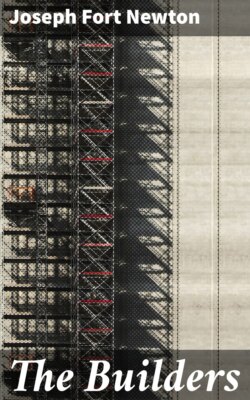Читать книгу The Builders - Joseph Fort Newton - Страница 21
На сайте Литреса книга снята с продажи.
III
ОглавлениеToward the end of their power, the Mysteries fell into the mire and became corrupt, as all things human are apt to do: even the Church itself being no exception. But that at their highest and best they were not only lofty and noble, but elevating and refining, there can be no doubt, and that they served a high purpose is equally clear. No one, who has read in the Metamorphoses of Apuleius the initiation of Lucius into the Mysteries of Isis, can doubt that the effect on the votary was profound and purifying. He tells us that the ceremony of initiation "is, as it were, to suffer death," and that he stood in the presence of the gods, "ay, stood near and worshiped." Far hence ye profane, and all who are polluted by sin, was the motto of the Mysteries, and Cicero testifies that what a man learned in the house of the hidden place made him want to live nobly, and gave him happy hopes for the hour of death.
Indeed, the Mysteries, as Plato said,[46] were established by men of great genius who, in the early ages, strove to teach purity, to ameliorate the cruelty of the race, to refine its manners and morals, and to restrain society by stronger bonds than those which human laws impose. No mystery any longer attaches to what they taught, but only as to the particular rites, dramas, and symbols used in their teaching. They taught faith in the unity and spirituality of God, the sovereign authority of the moral law, heroic purity of soul, austere discipline of character, and the hope of a life beyond the tomb. Thus in ages of darkness, of complexity, of conflicting peoples, tongues, and faiths, these great orders toiled in behalf of friendship, bringing men together under a banner of faith, and training them for a nobler moral life. Tender and tolerant of all faiths, they formed an all-embracing moral and spiritual fellowship which rose above barriers of nation, race, and creed, satisfying the craving of men for unity, while evoking in them a sense of that eternal mysticism out of which all religions were born. Their ceremonies, so far as we know them, were stately dramas of the moral life and the fate of the soul. Mystery and secrecy added impressiveness, and fable and enigma disguised in imposing spectacle the laws of justice, piety, and the hope of immortality.
Masonry stands in this tradition; and if we may not say that it is historically related to the great ancient orders, it is their spiritual descendant, and renders much the same ministry to our age which the Mysteries rendered to the olden world. It is, indeed, the same stream of sweetness and light flowing in our day—like the fabled river Alpheus which, gathering the waters of a hundred rills along the hillsides of Arcadia, sank, lost to sight, in a chasm in the earth, only to reappear in the fountain of Arethusa. This at least is true: the Greater Ancient Mysteries were prophetic of Masonry whose drama is an epitome of universal initiation, and whose simple symbols are the depositaries of the noblest wisdom of mankind. As such, it brings men together at the altar of prayer, keeps alive the truths that make us men, seeking, by every resource of art, to make tangible the power of love, the worth of beauty, and the reality of the ideal.
